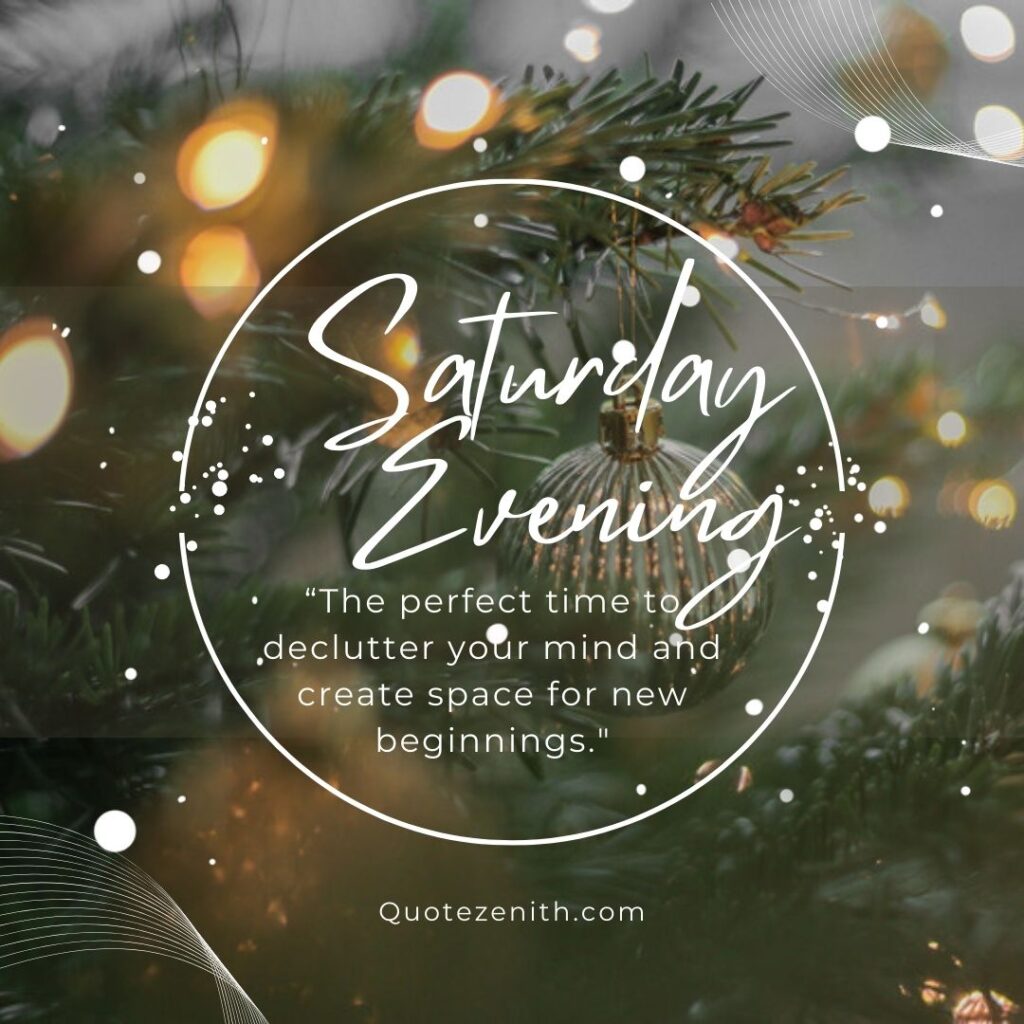Hey there, fellow quote enthusiasts! Ever wonder how different cultures around the world celebrate and preserve those nuggets of wisdom we call famous quotes?
Well, buckle up, because we’re about to embark on a global journey exploring the fascinating rituals and traditions that keep these pearls of insight alive and kicking.
From ancient proverbs to modern-day catchphrases, let’s dive into the quirky, meaningful, and sometimes downright bizarre ways humans honor the words that shape our lives.
The Power of Words: Why We’re Obsessed with Quotes
Before we jet off to different corners of the globe, let’s take a moment to ponder why we’re so darn obsessed with quotes in the first place. I mean, they’re just words, right? Wrong!
Famous quotes have a special kind of magic that makes them stick in our brains like glue. Here’s why:
- They’re bite-sized wisdom: In a world of information overload, quotes package big ideas into easy-to-digest morsels.
- They’re relatable: The best quotes tap into universal human experiences, making us feel less alone.
- They inspire action: A well-timed quote can be the kick in the pants we need to chase our dreams.
- They’re memory aids: Quotes help us remember important lessons and values.
- They connect us to history: Through quotes, we can “chat” with great minds of the past.
Now that we’ve got that sorted, let’s hop on our metaphorical plane and explore how different cultures keep these linguistic gems polished and shiny.
Eastern Wisdom: Confucius Says… A Lot!
Our first stop is China, where Confucius drops knowledge bombs like it’s going out of style. This ancient philosopher’s words have been shaping Chinese culture for over 2,500 years. Talk about staying power!
The Analects: A Daily Dose of Wisdom
In many Chinese households, reading from “The Analects” (a collection of Confucius’ sayings) is as common as having a morning cup of coffee. Some families have developed rituals around this practice:
- Morning recitations: Kids often recite Confucian quotes before breakfast to start the day on a wise note.
- Family discussions: During dinner, families pick a quote to dissect and apply to their daily lives.
- Calligraphy practice: Writing out Confucian quotes in beautiful Chinese characters is both an art form and a meditation on wisdom.
The Confucius Temple Fair: A Quote-tastic Celebration
Every September, the city of Qufu (Confucius’ hometown) goes quote-crazy during the Confucius Temple Fair.
Picture this: thousands of people dressed in traditional Han clothing, reciting famous Confucian quotes in unison. It’s like a massive wisdom flash mob!
Some highlights of this quote-tacular event include:
- The “Six Arts” competition: Participants show off their skills in rituals, music, archery, chariot racing, calligraphy, and mathematics, all while incorporating Confucian wisdom.
- Quote battles: Think rap battles, but with ancient Chinese philosophy. May the wittiest quote-slinger win!
- Wisdom wall: Visitors write their favorite Confucian quotes on a giant wall, creating a massive collage of inspiration.

Western Wit: Shakespeare’s Quill Still Has Pull
Now, let’s zip across the pond to good ol’ England, where the Bard himself, William Shakespeare, continues to dominate the quote game.
His words have become so ingrained in English-speaking cultures that we often use them without realizing it. “To be or not to be,” anyone?
The Shakespeare Birthday Celebration: A Quote-filled Extravaganza
Every April, the town of Stratford-upon-Avon transforms into a living, breathing homage to Shakespeare and his quotable quips. This birthday bash is like Comic-Con for literature nerds, complete with cosplay and fan theories.
Some of the quote-centric activities include:
- The Birthday Procession: Actors in Elizabethan costumes parade through town, shouting famous Shakespeare quotes.
- Sonnet Slam: Brave souls recite all 154 of Shakespeare’s sonnets in a marathon reading session.
- Insult contests: Participants hurl Shakespearean insults at each other. “Thou art a boil, a plague sore!” Ouch!
- Quote scavenger hunts: Visitors search the town for hidden Shakespeare quotes, competing for bragging rights and bardic swag.
Classroom Rituals: Bringing the Bard to Life
In many English-speaking countries, studying Shakespeare is a rite of passage. Teachers have developed some creative rituals to make those 400-year-old quotes relevant to modern students:
- Quote of the day: Classes start with a Shakespeare quote, which students then translate into modern slang.
- Shakespearean Twitter: Students create social media profiles for characters, communicating only in relevant quotes.
- Quote battles: Similar to the Chinese version, but with more “thee” and “thou.”
African Proverbs: Wisdom Passed Down Through Generations
Let’s shift gears and head to the vibrant continent of Africa, where oral traditions have kept proverbs and wise sayings alive for centuries. These nuggets of wisdom are often short, punchy, and packed with meaning.
The Griot Tradition: Living Libraries of Quotes
In many West African cultures, griots are the keepers of oral history, including proverbs and famous quotes. These walking, talking libraries of wisdom have some pretty cool rituals for preserving and sharing their knowledge:
- Apprenticeship: Young griots spend years memorizing thousands of proverbs and the stories behind them.
- Community gatherings: Griots perform at social events, peppering their tales with relevant proverbs.
- Call and response: The griot calls out the first half of a proverb, and the audience completes it, keeping the wisdom interactive and alive.
Proverb Parties: Celebrating Wisdom in Style
Some African communities have started hosting “proverb parties” to keep their linguistic heritage thriving. These events are like a mix between a poetry slam and a wisdom convention:
- Proverb contests: Participants try to out-proverb each other, with judges awarding points for relevance and delivery.
- Proverb art: Artists create visual representations of famous proverbs, which are displayed and interpreted by guests.
- Wisdom wall: Similar to the Confucian version, but with a distinctly African flair.
Indian Subcontinent: Where Ancient Wisdom Meets Bollywood Glam
Now, let’s spice things up with a trip to the Indian subcontinent, where ancient Sanskrit wisdom coexists with catchy Bollywood dialogue. This unique blend of old and new creates some fascinating quote rituals.
The Bhagavad Gita: Daily Doses of Divine Wisdom
The Bhagavad Gita, a 700-verse Hindu scripture, is a goldmine of quotable material. Many families have developed rituals around its wisdom:
- Morning readings: Starting the day with a verse from the Gita is common in many households.
- Quote-based meditation: People choose a particular quote to focus on during their daily meditation practice.
- Gita jayanti celebrations: This annual event celebrates the “birth” of the Bhagavad Gita with continuous recitations and discussions of its famous quotes.
Bollywood Dialogue: When Movie Quotes Become Life Mottos
In a fun twist, many Indians have embraced famous movie dialogues as their personal philosophies. This has led to some unique cultural phenomena:
- Auto-rickshaw wisdom: Drivers often decorate their vehicles with their favorite movie quotes, turning commutes into rolling philosophy lessons.
- Wedding speeches: It’s not uncommon for wedding toasts to be sprinkled with relevant Bollywood quotes about love and life.
- Quote-off competitions: Friends challenge each other to communicate using only movie dialogues for a day. Hilarity ensues!

Latin America: Where Magical Realism Meets Revolutionary Rhetoric
Alright, amigos, it’s time to salsa our way to Latin America, where the words of literary giants like Gabriel García Márquez dance with the fiery speeches of revolutionaries. This potent cocktail of magical realism and political passion has created some truly unique quote rituals.
The García Márquez Pilgrimage: Literary Tourism at Its Finest
In Colombia, fans of the Nobel Prize-winning author Gabriel García Márquez have turned his hometown of Aracataca into a quote-hunter’s paradise. This pilgrimage is like a scavenger hunt for literary buffs:
- Quote-marked locations: Significant spots around town are marked with relevant quotes from Márquez’s works.
- Butterfly release ceremonies: Inspired by the yellow butterflies in “One Hundred Years of Solitude,” visitors release butterflies while reciting their favorite Márquez quotes.
- Magical realism writing workshops: Aspiring writers gather to create their own quotable gems in the master’s style.
Revolutionary Quote Rituals: Words as Weapons of Change
In many Latin American countries, the words of revolutionary figures like Che Guevara and Frida Kahlo have taken on an almost religious significance. This has led to some powerful rituals:
- Quote murals: Urban artists create massive murals featuring portraits of revolutionary figures alongside their most famous quotes.
- Annual quote readings: On the birth or death anniversaries of these icons, people gather for public readings of their most inspiring words.
- Tattoo traditions: Many folks choose to permanently ink their favorite revolutionary quotes on their bodies, turning their skin into living testaments to these ideals.
Middle Eastern Wisdom: Where Ancient Proverbs Meet Poetic Passion
Let’s ride our magic carpet to the Middle East, where the tradition of wise sayings goes back millennia. From biblical proverbs to Sufi poetry, this region is a treasure trove of quotable wisdom.
Rumi’s Whirling Words: Sufi Wisdom in Motion
The 13th-century Persian poet Rumi has fans worldwide, but in Turkey, his words are celebrated in a uniquely mesmerizing way through the ritual of the Whirling Dervishes:
- Meditative whirling: Dervishes spin in a trance-like state, reciting Rumi’s poetry in their minds.
- Quote-inspired music: Musicians compose melodies based on the rhythm and meaning of Rumi’s most famous quotes.
- Annual Rumi festivals: These events feature poetry recitations, whirling performances, and discussions about the deeper meanings behind Rumi’s words.
Arabic Calligraphy: Where Quotes Become Visual Art
In many Middle Eastern cultures, the art of calligraphy turns wise sayings into stunning visual masterpieces:
- Quranic verses: Calligraphers create intricate designs using famous quotes from the Quran.
- Proverb pottery: Artisans inscribe traditional proverbs on ceramics, turning everyday objects into sources of wisdom.
- Modern quote fusion: Young artists blend ancient sayings with contemporary design, creating a bridge between past and present.
East Asian Aesthetics: When Fewer Words Speak Volumes
Our next stop is East Asia, where the art of saying more with less has been perfected over centuries. From Japanese haiku to Chinese chengyu (four-character idioms), this region knows how to pack a punch with just a few words.
Haiku Competitions: Battling It Out with Syllables
In Japan, the 17-syllable haiku isn’t just a poetic form; it’s a way of life. Haiku competitions have become a unique way of celebrating and creating quotable moments:
- Seasonal haiku contests: Participants create haiku based on the current season, with the best ones published and celebrated.
- Haiku walks: Groups take nature walks, stopping to compose haiku inspired by their surroundings.
- Haiku fortune-telling: Some shrines offer fortunes in the form of haiku, which visitors interpret for guidance.
Chengyu Challenges: Four Characters, Infinite Wisdom
In China and other Sinophone cultures, chengyu (four-character idioms) are like concentrated packets of wisdom. They’ve inspired some interesting cultural practices:
- Chengyu battles: Similar to rap battles, contestants try to out-wit each other using only four-character idioms.
- Idiom pictionary: Players try to guess chengyu based on quickly drawn pictures, leading to hilarious misinterpretations.
- Four-character wisdom walls: Public spaces feature walls where people can write their favorite chengyu, creating a community-sourced wisdom tapestry.
Modern Memes: When Internet Culture Creates New Quotable Moments
Alright, let’s fast-forward to the digital age, where memes and viral tweets are the new famous quotes. These bite-sized bits of wisdom (or folly) have created their own unique cultural rituals.
Meme Museums: Where Internet Quotes Go to Live Forever
Yes, you read that right. Meme museums are becoming a thing, and they’re changing how we preserve and celebrate modern-day quotes:
- Interactive meme exhibits: Visitors can insert themselves into famous meme templates, becoming part of the quote.
- Meme evolution timelines: Museums track how certain quotes evolve and change meaning over time.
- Meme creation workshops: Aspiring meme-lords learn the art of crafting shareable, quotable content.
Tweet Archiving: Preserving 280-Character Wisdom
With so much of our cultural discourse happening on social media, new rituals have emerged to preserve tweet-sized wisdom:
- Annual tweet roundups: Publications and individuals curate lists of the year’s most impactful or hilarious tweets.
- Tweet-inspired art: Artists create works based on particularly poignant or funny tweets, turning digital quips into physical art.
- Twitter time capsules: Communities create digital time capsules of tweets that capture the essence of a particular moment in time.

The Global Quote Exchange: When Wisdom Knows No Borders
In our interconnected world, quotes from one culture often find new life and meaning in another. This cross-pollination of wisdom has led to some fascinating global rituals.
International Quote Day: A Worldwide Celebration of Wisdom
April 23rd (Shakespeare’s birthday) has been unofficially dubbed International Quote Day in some circles. This global event features some cool activities:
- Quote exchange programs: People from different countries swap their favorite local quotes and discuss their meanings.
- Multilingual quote chains: Participants translate a quote through multiple languages and back to the original, observing how the meaning changes.
- Global wisdom walls: Cities around the world set up physical or digital walls where people can share quotes from their cultures.
The Polyglot Quote Challenge: Wisdom in Many Tongues
Language learners and polyglots have created their own rituals around famous quotes:
- Quote of the day challenge: Participants learn a new quote in their target language each day, using it in conversation.
- Cross-cultural proverb matching: People try to find equivalent proverbs in different languages, exploring how wisdom is expressed across cultures.
- Accent imitation contests: Language enthusiasts compete to deliver famous quotes in the most authentic accent possible.
Preserving Indigenous Wisdom: Keeping Ancient Quotes Alive
As we wrap up our global tour, let’s shine a spotlight on efforts to preserve and celebrate quotes from indigenous cultures around the world.
Storytelling Festivals: Oral Traditions in the Modern World
Many indigenous communities are reviving the art of storytelling as a way to keep their ancestral wisdom alive:
- Intergenerational story circles: Elders share traditional stories and sayings with younger generations.
- Digital storytelling projects: Young indigenous people create multimedia presentations of their favorite tribal quotes and their meanings.
- Quote-inspired dance performances: Traditional dances are choreographed to visually represent famous tribal sayings.
Language Revitalization Through Quotes
For endangered languages, preserving famous quotes has become a crucial part of language revitalization efforts:
- Quote-based language lessons: Language learners start by mastering famous sayings in their ancestral tongue.
- Wisdom app development: Tech-savvy indigenous youth create apps that share traditional quotes in their native languages.
- Annual wisdom-speaking contests: Community members compete to eloquently explain the meaning behind traditional sayings in their native language.
Conclusion: The Endless Cycle of Quotable Wisdom
Whew! What a journey, right? From ancient Chinese temples to modern meme museums, we’ve explored how cultures around the world keep their famous quotes alive and kicking.
It’s pretty amazing to see how a few well-chosen words can spark rituals, traditions, and entire cultural phenomena.
As we’ve seen, quotes aren’t just dusty old sayings in books. They’re living, breathing parts of our cultures that evolve, adapt, and find new meaning with each generation.
Whether it’s a Confucian analect, a Shakespearean sonnet, or a viral tweet, these bits of wisdom connect us to our past, help us understand our present, and guide us toward our future.
So, the next time you come across a quote that really speaks to you, why not start your own ritual around it?
Who knows, you might just be kicking off the next big cultural tradition. After all, every famous quote started with someone saying something meaningful. Your words could be next!
Also Read This:
- How Quotes Go Viral On Social Media: The Influence Of Quotes Trends
- Investigate How Teachers Use Quotes To Inspire And Educate Students
- How Therapists Use Quotes To Change Negative Thought Patterns: Cognitive Behavioral Therapy (CBT)
- How Much Quote Sharing Online Has Changed In Digital Age
- How Maintaining A Quote Journal Can Improve Mental Well-Being
- Can’t Focus in the A.M.? : The Simple (But Powerful) Morning Ritual
- The Psychology Of Inspirational Quotes: Why Do They Motivate Us?
- 71+ Positive Sunday Blessings or Quotes for a Fantastic Week
- 66+ Electrifying Positive Monday Blessings for a Thriving Week
- 149+ Awesome Tuesday Blessings Images For Inspirational Week





